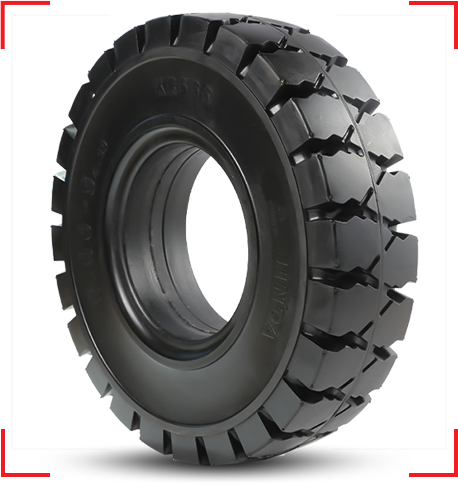Solid tires for forklifts are crafted from robust rubber or polyurethane compounds, devoid of air chambers or foam fillings. This solid construction endows them with exceptional durability, rendering them resistant to punctures, tears, and flats. In environments where puncture risks are prevalent, such as warehouses, distribution centers, and manufacturing facilities, these tires offer a dependable solution that minimizes downtime and operational disruptions.
The inherent durability of standard solid tires extends their lifespan and minimizes the frequency of replacements or repairs compared to pneumatic or cushion tires. This attribute translates to reduced maintenance costs and enhanced operational efficiency, making them an economically sound choice for businesses seeking long-term reliability in their material handling equipment.
standard solid tires excel in load-bearing capacity and stability. Their sturdy construction and consistent contact surface provide even weight distribution, enhancing stability and traction. Forklifts equipped with standard solid tires can efficiently handle heavy loads, traverse diverse terrains, and execute maneuvers with ease, contributing to improved productivity and operational efficiency.
The versatility and resilience of standard solid tires make them suitable for a myriad of applications and environments. Whether operating in indoor warehouses or outdoor settings with rough surfaces or debris, these tires maintain their integrity and functionality, delivering consistent performance across various operational conditions.
the low maintenance requirements of standard solid tires add to their appeal. Devoid of air pressure checks or vulnerabilities to punctures, these tires offer a lower total cost of ownership. Their resilience against wear and tear minimizes downtime, contributing to increased productivity and cost-effectiveness for businesses relying on forklifts for material handling.
While standard solid tires prioritize durability and reliability, they might exhibit certain trade-offs in terms of ride comfort and shock absorption compared to pneumatic tires. Nonetheless, advancements in tire technology continuously strive to mitigate these concerns, aiming to strike a balance between performance and operator comfort.
Recent innovations in standard solid tire design emphasize specialized compounds and tread patterns. These advancements aim to improve traction, reduce rolling resistance, and optimize tire performance across specific applications or terrains, further enhancing the adaptability and effectiveness of standard solid tires in diverse material handling scenarios.




 Français
Français
 عربى
عربى
 Español
Español















